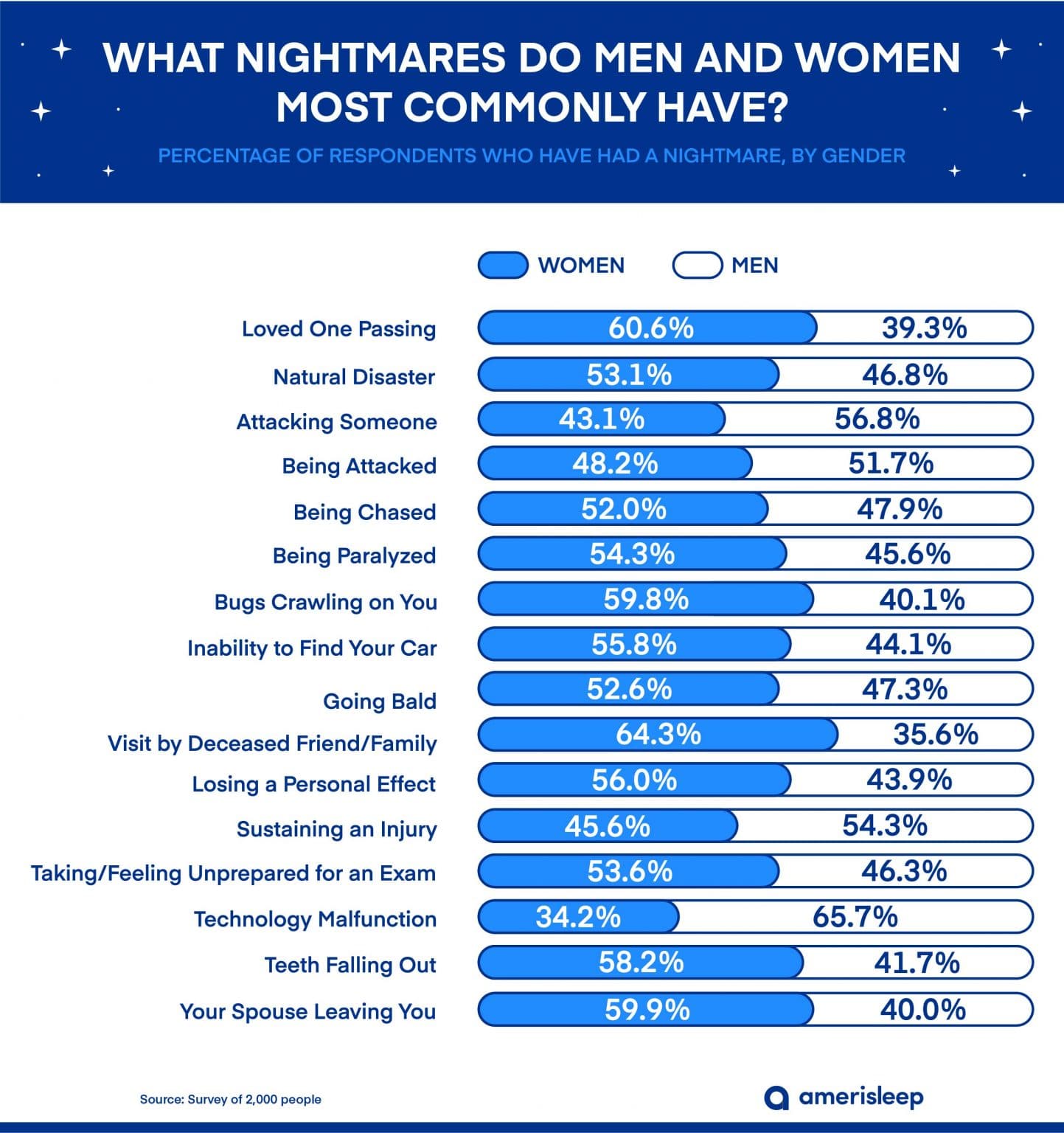

One theory is that nightmares are a reflection of our unresolved fears and anxieties, which can manifest themselves in our subconscious mind during sleep. While the exact cause of nightmares is not clear, there are several theories that aim to explain why they occur and what they are trying to tell you.

Some individuals experience recurring nightmares, which can affect their overall quality of life and sleep patterns. Nightmares are vivid and often disturbing dreams that can cause a range of emotional reactions such as fear, anxiety, sadness, and anger. it is important to recognize the warning signs of nightmares and seek help if necessary to ensure better quality of sleep and overall mental health.

In some cases, making changes to the sleep environment, such as reducing exposure to bright light or loud noise, may also be helpful in reducing the incidence of nightmares. Treatment options may include therapy, medications, or lifestyle changes to improve sleep hygiene and reduce stress levels. If an individual is experiencing any of these warning signs, it is recommended that they speak with a healthcare professional to determine the underlying cause and receive appropriate treatment. It is also important to note that certain medications or substances may contribute to the development of nightmares. Additionally, if a person has a history of trauma or has experienced a traumatic event, they may be at greater risk for developing nightmares. Other warning signs may include persistent feelings of anxiety or depression, difficulty falling or staying asleep, and changes in mood or behavior. Secondly, if the person experiences physical symptoms such as sweating, tremors, or rapid heart rate during sleep, it may also be a warning sign of nightmares. Firstly, if a person experiences frequent or persistent episodes of nightmares, it may be an indication of an underlying psychological or medical condition.

There are several warning signs that may indicate the presence of nightmares. While it is common for people to experience the occasional nightmare, recurrent or chronic nightmares can be a sign of a more serious underlying condition such as post-traumatic stress disorder (PTSD) or anxiety disorders. Nightmares are intense and frightening dreams that can cause a wide range of distressing symptoms such as disturbed sleep patterns, feelings of anxiety and fear, and even physical responses such as rapid heart rate, sweating and shaking.


 0 kommentar(er)
0 kommentar(er)
